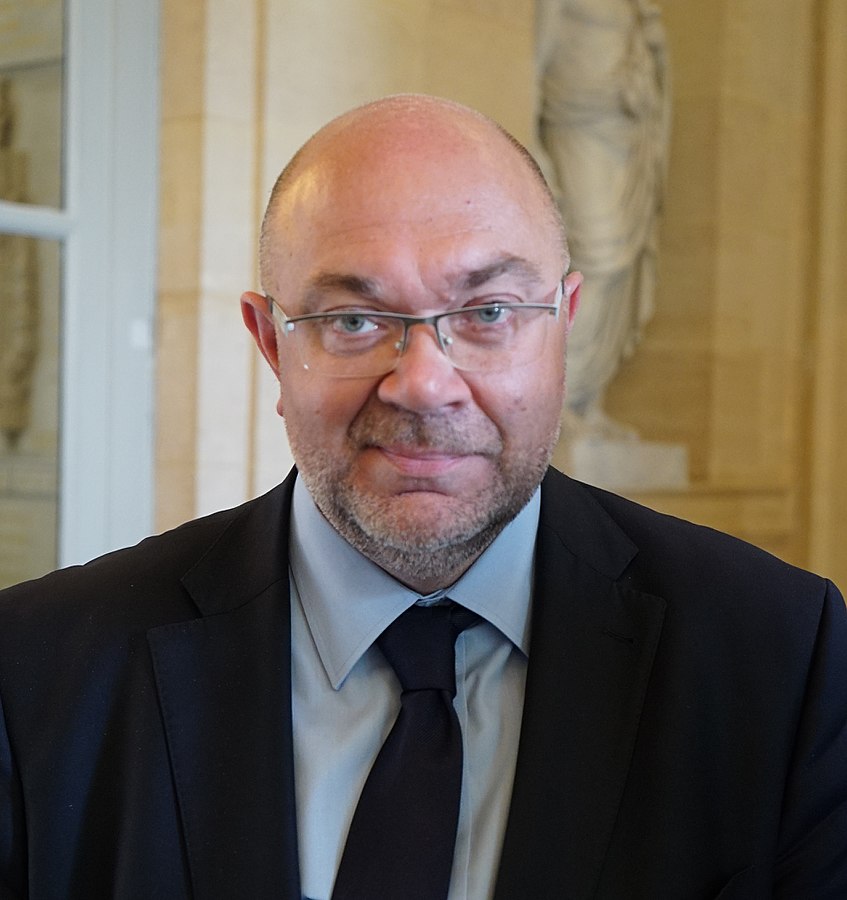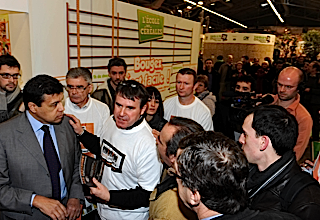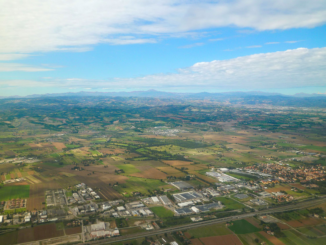The platform Pour une autre PAC (For Another Common Agricultural Policy) is a French inter-association body created for a common reflection and action in view of the reform of the Common Agricultural Policy. This article explains and critiques the French Agricultural Minister’s position on CAP. Part three outlines Pour une autre PAC’s own position in more detail. Part 1 can be found here.

By Auréile Catallo
The reform of the CAP has not been French Ministry of agriculture’s priority until very recently. After the election of President Macron and the appointment of Stéphane Travert as Minister for Agriculture and Food the so-called Etats généraux de l’alimentation, was launched – a nationwide summit about the agro-food system. This lasted several months and mobilized a lot of energy both from French authorities and from the various involved stakeholders.
Even though the original project intended to cast a wide net, to take in different topics, ranging from sustainability to evolution of policies, the Etats généraux remained in the end narrowly focused, with the emphasis being improving efficiency in the food chain. So the focus was on how to better share added value out along the chain, how enhance farmers’ bargaining power against food retailers, and to do so without increasing consumer prices or without loosing competitiveness for French markets.

In brief, this was a definitively needed reflection, but it was far from an open debate which would have offered a wider and more representative position for France towards the reform of the CAP, as it could have been hopped at the beginning.
However, immediately after the Etats généraux de l’alimentation, Stéphane Travert organized on 19th December a big conference of the future of the CAP in Paris. He invited a broad cast of French stakeholders to attend, but also his counterparts from other Member States as well as Commissioner Hogan. Ministers of agriculture from Ireland, Spain, the Netherlands, Estonia, Poland had taken up Travers’ invitation and delivered very politically-correct messages, accepting with courtesy Travers’ outstretched hand towards anticipated multilateral negotiations. Indeed French Minister intention is not to wait for Council sessions to start building alliances and designing deals with other Member States.
The French Minister’s Position on CAP
At the occasion of this conference, Stéphane Travert refined his four main points for the reform of the CAP, that he had revealed the day after the publication of the European Commission’s communication. He sets four goals to the future CAP reform:
- Liberate the development of agricultural and agrifood firms, ensuring payment of “fair prices” to producers, fostering work on a sectoral basis and adjusting rules and schemes to match the specific characteristics of each sector. This point is aligned with the orientation given to the Etats généraux de l’alimentation and the entry into force of the Omnibus regulation. However this targets more the EU competition law rather than the CAP: it remains unclear which measures of the CAP this would impact, apart from the common organisation of agricultural markets, the reform of which has not yet been mentioned by France.
- Strengthen risk management. Risk management constitutes indeed one of the main objectives of the minister for the PAC’s reform. The idea of constituting a third pillar dedicated to the topic has been under strong consideration in France. Stéphane Travert may have repeated, echoing Phil Hogan, that “the first safety net for farmers remains decoupled payments”, he also wishes to deploy a set of complementary tools, such as mutual funds, private insurance schemes, fiscal dispositions incentivising farmers to voluntary precautionary savings, and a revision of the European crisis reserve.
- Attach value to, and remunerate the environmental services provided by farming. Stéphane Travert holds that the 2013 greening programme has been coherent, but overly complex. He pushes for the establishment of incentive payments, rewarding soil preservation in particular. He also wishes for a revision of conditionality, and the development of a specific accompanying scheme for environmentally-sensitive areas.
- Support climate, energy and territorial transitions by fostering the transformation of production systems and practices. This huge chapter embraces very different challenges such as growth and employment in rural areas and environment or climate change.
As previously mentioned, Stéphane Travert also reacted to the European Commission’s communication on five main issues.
- The Commission has suggested a greater use of subsidiarity through a reinforcement of each member state’s responsibility in the CAP’s implementation. As many of his fellow European ministers for agriculture, he positioned himself against a lowering of the common European ambition, but in favor of more flexibility. Provided that the Commission’s proposal comes with proper safeguards, it could be a solution, the French minister feels.
- As for simplification, Stéphane Travert shares commissioner Hogan’s will to make it an absolute priority. Hence he wishes a prolongation of the “positive steps allowed by the Omnibus regulation”.
- The possibility of a co-financing of the First Pillar does not even seem to remain under consideration, after it has been criticized and rejected by the different stakeholders. Stéphane Travert deemed too that it “could not even constitute a working hypothesis”. He also insisted on the fact that the CAP should not be regarded as the next European budget’s adjustment variable.
- He criticised the lack of emphasis on quality approaches in the communication, but praised the opening of the field of collective schemes.
- Finally the question of a capping of subsidies – a very sensitive one in France – has been carefully avoided. Stéphane Travert merely conceded the need to improve subsidizing targets through focusing on those structures bearing more added value and employment perspectives.
How to assess French Minister’s position on CAP?
First, one can notice that food is not an issue in Travert’s propositions nor in the Commission’s communication, which is however entitled “The Future of Food and Farming”. The always deeper disconnection between production/producers and consumption/consumers does not seem to bother Stéphane Travert. In contrast, the platform Pour une autre PAC speaks in favour of transforming the CAP into a new Agriculture and Food Common Policy, which would take the shape of a new deal between farmers and society, allowing both the former to make a good living off their work and their fellow citizens to benefit from the positive outcomes of their work.
Secondly, Stéphane Travert clearly belongs to supporters of the “evolution, not revolution” approach, where Pour une autre PAC highlights the urgent need for an in-depth reform. His proposals suits the main farmer’s union, which Travert conscientiously avoids ruffling the feathers of, but they do not satisfy progressive actors such as the members of Pour une autre PAC. Is it really the case that so few changes are required? CAP 2014 to 2020 has lacked greening ambition, has discriminated against small farms because of its criteria, has lacked capping and maintained an imbalance between the 1st and 2nd pillars, only contributing to the advancement of the deregulation process. In France, the trust farmers put in the CAP has been profoundly undermined by its incoherence, its complexity, its incapacity to allow them to make a decent living off their production and, most of all, by the instability of its mechanisms.
In light of such failures, the reform of the CAP comes as a major opportunity for an entire generation to instill better perspectives for the French agricultural sector, whilst answering the many hopes and demands civil society had formulated in terms of food, employment, animal welfare, environment, health, respect for farmers here and in developing countries, fight against climate change as well as depopulation of rural areas and land grabbing. This is why the platform Pour une autre PAC asks of French and European policy makers to carry out with ambition and courage a full revision of the CAP. An overview of what this reform could look like is provided in part three.
 Aurélie Catallo has been hired as the coordinator of the platform Pour une autre PAC since December 2017. During the previous nine months, she was already in charge of the project of revival of the platform. Prior to that, she worked during two years for the French ministry of agriculture, and more precisely, for its regional direction in Île-de-France. Aurélie Catallo graduated with a double-degree MS in European affairs at both Sciences Po Lille and Westfälische Wilhems-Universität münster (Germany). She also holds an advanced master in sustainable agriculture and rural development public policies from AgroParisTech.
Aurélie Catallo has been hired as the coordinator of the platform Pour une autre PAC since December 2017. During the previous nine months, she was already in charge of the project of revival of the platform. Prior to that, she worked during two years for the French ministry of agriculture, and more precisely, for its regional direction in Île-de-France. Aurélie Catallo graduated with a double-degree MS in European affairs at both Sciences Po Lille and Westfälische Wilhems-Universität münster (Germany). She also holds an advanced master in sustainable agriculture and rural development public policies from AgroParisTech.





